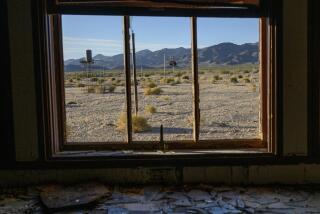A Global Warming Sea Change
- Share via
With the existence of global warming no longer in doubt, whatever the mix of causes, attention is shifting to what should be done right now, not to stop warming but to live with it.
Some environmentalists still wrongly suggest that global warming would cease if only we switched to more fuel-efficient factories and cars. That would help, of course, but climatologists agree that a substantial rise in world temperatures is inevitable.
The dwindling band of global warming skeptics and deniers is just as far off base. Estimates of how fast and how much temperatures may rise vary from one major study to another, but there’s no longer any doubt that global warming will significantly affect our lives and our children’s future. A picture of ways to deal with warming is emerging:
* Cities can review building codes and planning policies, for example, to discourage building on low-lying beachfronts subject to flooding if ocean levels rise. The mayors of 567 U.S. cities and towns recognized the problem in November in a request for more federal weather disaster funding to deal with an increase in “extreme weather events.”
* The insurance industry also has a role. U.S. companies should follow the lead of the Geneva Assn., a coalition of European insurers that has drawn up a plan of practical ideas, including discounts to homeowners who renovate their houses to withstand storm winds.
* Agricultural practices will have to change. For instance, effects of global warming could, in the long term, reduce citrus harvests in California by up to 30%.
The greatest burden of global warming leadership in the U.S., however, will fall on the federal government, which doles out the major share of government funds that states and counties use to manage natural resources.
The Clinton administration has asked Congress to allocate $1.74 billion over the next fiscal year for studying the potential impacts of climate change on forests, coastal areas, croplands and other ecosystems. The administration, however, has yet to take on some of the tough issues, such as eliminating agricultural subsidies that encourage farmers, even in dry areas, to plant water-intensive crops that could drain reservoirs in a future drought.
Scientists in the U.S. Global Change Research Program, established by President Reagan, are now pushing Clinton administration officials to approve specific, far-reaching policy objectives in the group’s report on global warming, due out this summer. These recommendations include altering tree-cutting policies in Southern forests and changing management systems for water in the Western states. Many states object to such recommendations, but the administration should resist these pressures. The report makes a sound case.






